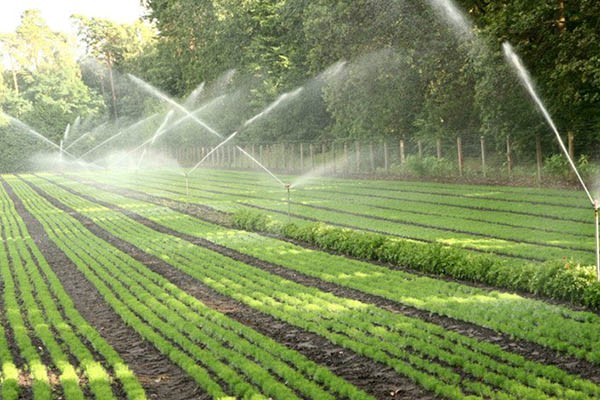Viet Nam's agriculture is facing mounting challenges in water resource management. However, by embracing innovation, improving efficiency, and strengthening international cooperation, the country holds great potential to meet its sustainable development goals while safeguarding food security and enhancing global competitiveness.
Improving water use efficiency
Agriculture remains a cornerstone of Viet Nam's economy, accounting for approximately 12% of GDP and employing over 60% of the rural workforce. Yet, its growth is increasingly constrained by limited water resources—vital for ensuring productivity and product quality. Climate change, saltwater intrusion, prolonged droughts, and growing water demand from urban and industrial sectors exacerbate the issue.
Although Viet Nam has an extensive river system with an annual surface water volume of nearly 936 billion cubic meters, over 70% originates from upstream countries—mainly in the Mekong and Red River basins. This reliance on external sources significantly complicates efforts to manage and secure water supplies for agricultural production as neighboring nations expand their water use for hydropower and farming.
In response, the Ministry of Agriculture and Environment is advancing strategic international partnerships to strengthen water security and improve efficiency across the sector.
Strengthening international cooperation
Viet Nam prioritizes collaboration with countries sharing transboundary water resources to establish equitable water-sharing mechanisms, minimize the downstream impact of hydropower projects, and ensure stable water flows for agriculture.
Within the Mekong River Commission (MRC) framework, Viet Nam actively engages with Laos, Thailand, and Cambodia to address the effects of upstream hydropower development. These efforts aim to mitigate saltwater intrusion and drought in the Mekong Delta, a region vital to national food production.
 Smart irrigation system. Source: ITN
Smart irrigation system. Source: ITNViet Nam is also cooperating with China on managing the Red River Basin. The exchange of hydrological data enables better water regulation for rice and crop production in the Red River Delta, helping to protect more than 4 million hectares of farmland during dry seasons.
Beyond regional cooperation, Viet Nam is learning from international best practices. Partnerships with countries such as the Netherlands have enabled the adoption of innovative water-saving technologies, including dike systems and freshwater reservoirs that combat saltwater intrusion in the Mekong Delta. Collaboration with Japan has supported the development of high-tech agriculture, with pilot projects using water recycling systems to reduce water loss and enhance productivity.
These initiatives conserve water and open new opportunities to boost Viet Nam's agricultural products' quality and export value.
Maximizing the value of water
Currently, agriculture consumes around 80% of Viet Nam's water resources, yet the economic return per cubic meter remains relatively low. To address this, Viet Nam is shifting toward policies that increase water productivity and optimize land use.
In line with the Politburo's strategic guidance, Viet Nam plans to reduce 500,000 hectares of rice cultivation by 2030, reallocating land to less water-intensive crops such as fruits and vegetables. Simultaneously, the government is promoting circular agriculture and water reuse. Closed-loop production models are being rolled out in specialized farming zones, reducing water waste while protecting the environment.
These policy shifts aim to improve water efficiency, increase agricultural export value, and raise incomes for rural communities.
To secure long-term water sustainability, Viet Nam focuses on three key pillars: strengthening water governance in agriculture, developing advanced water data systems, and mobilizing investment for water infrastructure. The government is accelerating the development of irrigation canals, reservoirs, and wastewater treatment systems while working with international partners to implement public-private partnership (PPP) models.